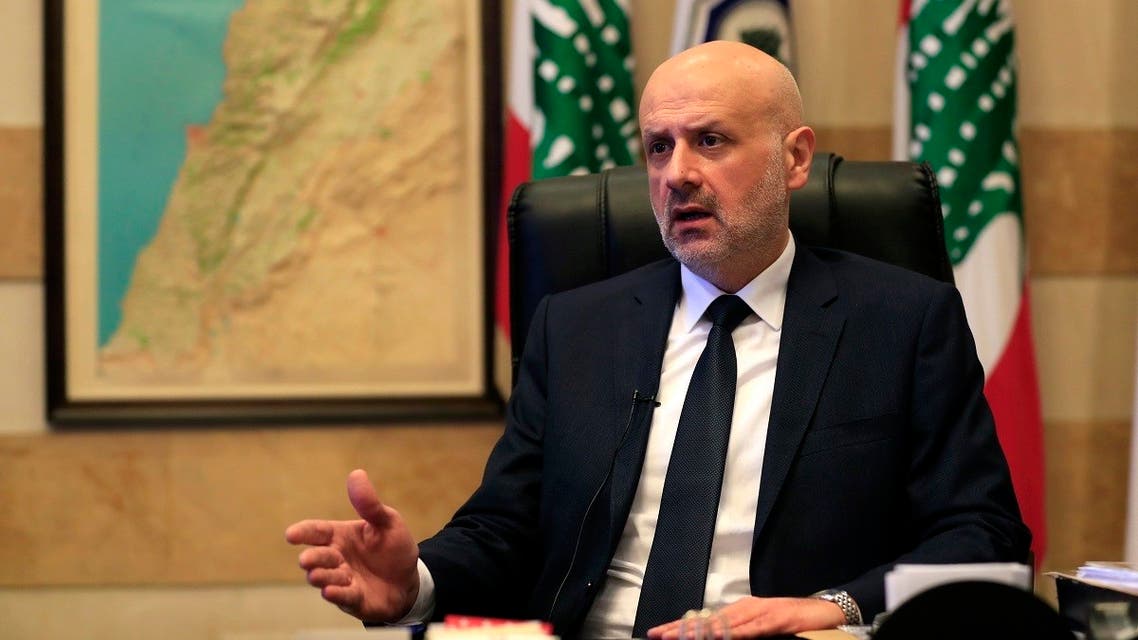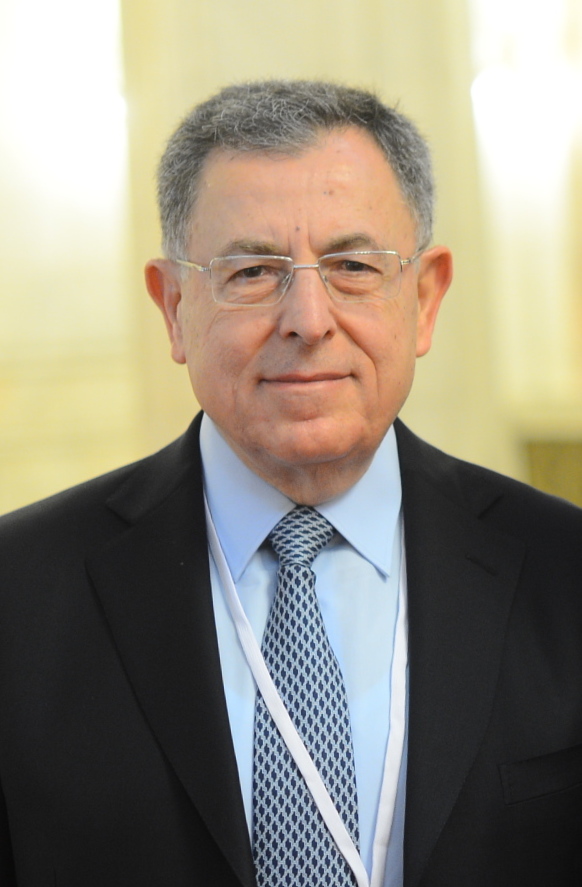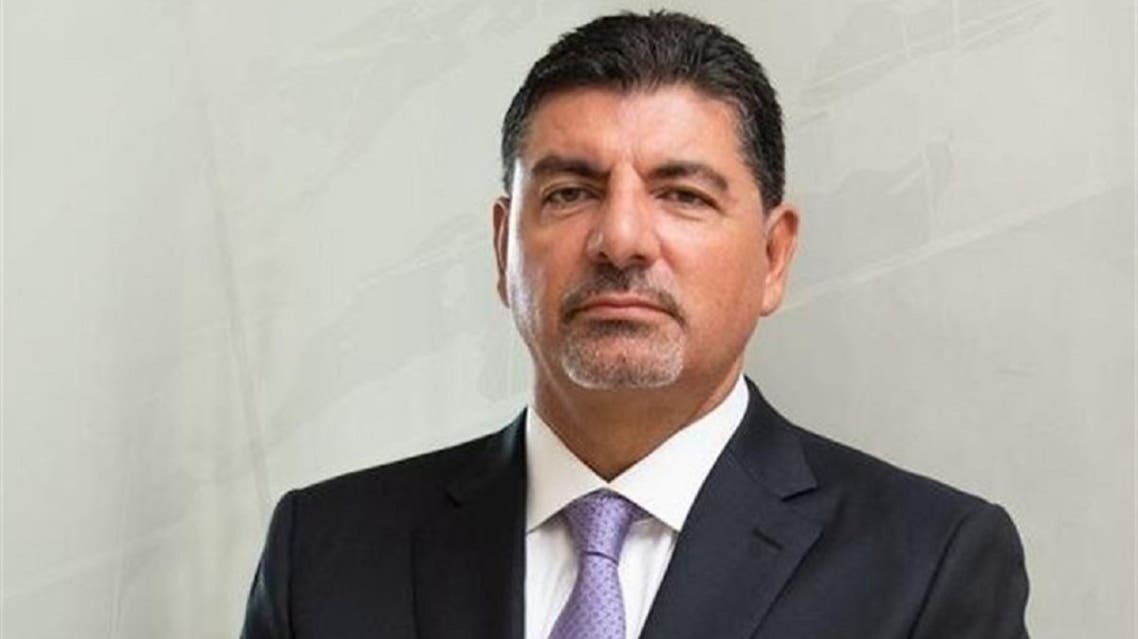
interior Minister Mawlawi
By Najia Houssari -- arabnews.com -- BEIRUT: The final number of candidates who will run for the May 15 Lebanese parliamentary elections is 1,043. The final total includes 155 women, 15 percent of the registered candidates. This is the highest number of candidates in Lebanese political history, with the number of candidates for one seat exceeding expectations in some electoral districts. In 2018, 976 candidates registered, including 111 women. The battle is being fought between the parties in power and the civil movement that accuses the authorities of corruption while opposing armed militias and what they call the Iranian occupation of Lebanon. The elected majority will form the new parliament that will elect the president who will rule the country in October. Opposition parties are hoping for urgent presidential reform after the reign of Michel Aoun, which has been filled with rivalries, political disputes and economic meltdown.
Candidates can finalize the electoral lists for each district until April 4, with the deadline for those who decide to withdraw their candidacy falling on March 30. They will not be permitted to withdraw their $1,500 deposit. The number of candidates expected to run on election day is anticipated to be halved due to the inability of everyone to join lists. Lebanese Interior Minister Bassam Mawlawi said: “As the government promised, it is ready to hold the elections, and citizens must go to cast their votes, following their interests in a real homeland.” He called on the local and international community to participate in monitoring the polls to “ensure their transparency and integrity and the total impartiality of the government.” He said there are no “logistical obstacles” and that the government is working toward fulfilling all electoral needs. The current candidates are distinguished by the strong presence of lawyers, most notably the previous head of the Beirut Bar Association Melhem Khalaf, one of the activists in the civil movement, in addition to several media professionals.

interior Minister Mawlawi
By Najia Houssari -- arabnews.com -- BEIRUT: The final number of candidates who will run for the May 15 Lebanese parliamentary elections is 1,043. The final total includes 155 women, 15 percent of the registered candidates. This is the highest number of candidates in Lebanese political history, with the number of candidates for one seat exceeding expectations in some electoral districts. In 2018, 976 candidates registered, including 111 women. The battle is being fought between the parties in power and the civil movement that accuses the authorities of corruption while opposing armed militias and what they call the Iranian occupation of Lebanon. The elected majority will form the new parliament that will elect the president who will rule the country in October. Opposition parties are hoping for urgent presidential reform after the reign of Michel Aoun, which has been filled with rivalries, political disputes and economic meltdown.
Candidates can finalize the electoral lists for each district until April 4, with the deadline for those who decide to withdraw their candidacy falling on March 30. They will not be permitted to withdraw their $1,500 deposit. The number of candidates expected to run on election day is anticipated to be halved due to the inability of everyone to join lists. Lebanese Interior Minister Bassam Mawlawi said: “As the government promised, it is ready to hold the elections, and citizens must go to cast their votes, following their interests in a real homeland.” He called on the local and international community to participate in monitoring the polls to “ensure their transparency and integrity and the total impartiality of the government.” He said there are no “logistical obstacles” and that the government is working toward fulfilling all electoral needs. The current candidates are distinguished by the strong presence of lawyers, most notably the previous head of the Beirut Bar Association Melhem Khalaf, one of the activists in the civil movement, in addition to several media professionals.

by arabnews.com -- Najia Houssari -- BEIRUT: With the candidacy deadline for the Lebanese parliamentary elections ending on Tuesday at midnight, over 875 applications had been submitted as of Tuesday afternoon. Lebanese Interior Minister Bassam Mawlawi said that work is underway “to secure IDs and personal status extracts, and all other voter needs. “We are working to secure electricity during the voting process and until the sorting of ballots ends.” The elections are scheduled to be held on May 15 amid a severe economic collapse that Lebanon has been enduring for two years and the possibility of the country slipping into further deterioration in the coming months. According to Mawlawi, 7,000 polling stations will be allocated throughout Lebanon. Meanwhile, Fouad Siniora has become the latest former premier to announce that he will not be running in the elections.
In January, former premier Saad Hariri announced his withdrawal from political life, expressing his conviction that “there is no room for any positive opportunity for Lebanon in light of the Iranian influence, international confusion, national division, rise of sectarian tensions, and the deterioration of the state.” Hariri had also instructed members of the Future Movement, which he heads, to not contest the elections under the movement’s name, but he did not call on his supporters to boycott them. Former premier Tammam Salam and the current Prime Minister Najib Mikati also announced that they will not stand along with Lebanon’s former ambassador to the UN, Nawaf Salam, who is currently a permanent member of the International Court of Justice in The Hague. Siniora told a press conference: “My decision not to run for the elections does not mean that I will be boycotting; on the contrary, I hope my position makes room for the new generation. I will be fully invested in the elections in all their aspects, without running for office.” He urged citizens to turn out to vote “so as not to allow opportunists to gain ground amid calls not to participate in this national duty.”

By Bahaa Hariri -- arabnews.com -- Russia’s decision to invade Ukraine will have ramifications that reverberate around the world for years to come. In the West, the immediate concern remains the invasion’s impact on the oil and gas markets. Yet, in countries like Lebanon, with just six weeks to two months of wheat reserves, the war’s impact on agricultural supply chains could well be the straw that finally breaks the camel’s back. With an economy struggling due to the impacts of decades of corruption, a financial crisis and COVID-19, the upcoming parliamentary elections have never been so important. My fellow Lebanese face a bleak future, with no jobs for workers, no fuel at the gas stations and food at record prices. Children are already going hungry up and down the country and, should the crisis in Ukraine continue, food prices will only skyrocket further. Given Lebanon imports more than 60 percent of its wheat from Ukraine, the situation has the potential to escalate at a frightening pace.
The elections in May remain the last chance Lebanon has to vote for a government that is willing to implement concrete policies to ease the pain of our people. Inaction or maintaining the status quo is not an option. As long as the people of Lebanon allow sectarian politics to continue, the country will be subject to manipulation, political interference and attempts to cause more chaos from the outside as well as from the political elites within. Unfortunately, the political establishment in Lebanon has closed ranks, determined to maintain its tenuous grip on power, and there is worrying speculation that the elections could be delayed. Unhelpfully, whereas the US and EU had been applying pressure on Lebanon to hold these elections, another side effect of the crisis in Ukraine is that their attention could be elsewhere.
Khazen History


Historical Feature:
Churches and Monasteries of the Khazen family

St. Anthony of Padua Church in Ballouneh
Mar Abda Church in Bakaatit Kanaan
Saint Michael Church in Bkaatouta
Saint Therese Church in Qolayaat
Saint Simeon Stylites (مار سمعان العامودي) Church In Ajaltoun
Virgin Mary Church (سيدة المعونات) in Sheilé
Assumption of Mary Church in Ballouneh
1 - The sword of the Maronite Prince
2 - LES KHAZEN CONSULS DE FRANCE
3 - LES MARONITES & LES KHAZEN
4 - LES MAAN & LES KHAZEN
5 - ORIGINE DE LA FAMILLE
Population Movements to Keserwan - The Khazens and The Maans
ما جاء عن الثورة في المقاطعة الكسروانية
ثورة أهالي كسروان على المشايخ الخوازنة وأسبابها
Origins of the "Prince of Maronite" Title
Growing diversity: the Khazin sheiks and the clergy in the first decades of the 18th century
Historical Members:
Barbar Beik El Khazen [English]
Patriach Toubia Kaiss El Khazen(Biography & Life Part1 Part2) (Arabic)
Patriach Youssef Dargham El Khazen (Cont'd)
Cheikh Bishara Jafal El Khazen
Patriarch Youssef Raji El Khazen
The Martyrs Cheikh Philippe & Cheikh Farid El Khazen
Cheikh Nawfal El Khazen (Consul De France)
Cheikh Hossun El Khazen (Consul De France)
Cheikh Abou-Nawfal El Khazen (Consul De France)
Cheikh Francis Abee Nader & his son Yousef
Cheikh Abou-Kanso El Khazen (Consul De France)
Cheikh Abou Nader El Khazen
Cheikh Chafic El Khazen
Cheikh Keserwan El Khazen
Cheikh Serhal El Khazen [English]
Cheikh Rafiq El Khazen [English]
Cheikh Hanna El Khazen
Cheikha Arzi El Khazen
Marie El Khazen